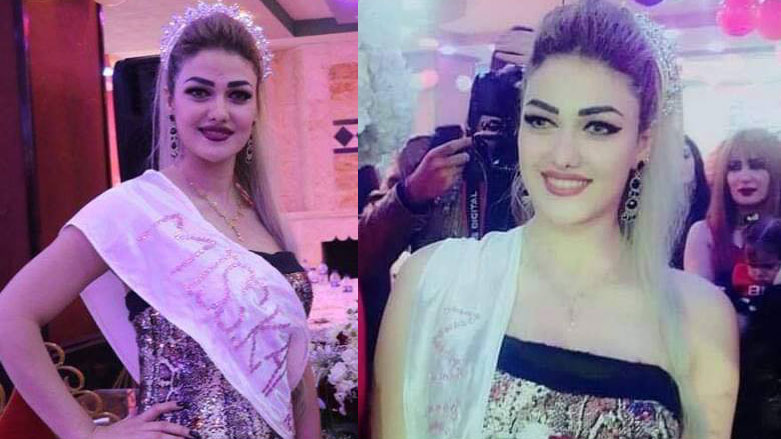A beauty contest held for the first time in Syria’s northeastern city of Qamishli on Saturday has sparked controversy among officials in the ruling local Kurdish authorities.
Amid devastating war in Syria, a feminist group in the city organized the beauty pageant in which 10 contestants competed for a title that ended up going to Miss Adla Hassan.
“The so-called beauty contest in Qamishlo is a real insult to society and its revolution, an insult to women, and an attempt to objectify them,” top Syrian Kurdish official Aldar Xelil posted on social media.
Xelil is the Diplomatic Relations spokesperson for the Movement for a Democratic Society (TEV-DEM), the main council governing Syria’s predominantly Kurdish area (Rojava), and he continued by calling on people in north Syria to instead pay more attention to the struggle of its women fighters and to celebrate their achievements.
“Aesthetically, compared to the sacrifices of our daughters, this event is ugly and totally contrary to morality,” he said.
Additionally, Ilham Ahmad, the co-chair of the Syrian Democratic Council (SDC) which administers Kurdish-controlled areas and is considered the political wing of the US-backed Syrian Democratic Forces (SDF), also strongly criticized organizing such beauty pageant events in north Syria.
“All the martyrs of [women fighters] are also beautiful, and none of them thought to compete for anything but the love of the homeland and defend the freedom of women and their will,” she posted on her social media.
REACTIONS TO AUTHORITIES’ POSITION
Kurdish activists on social media and several writers and journalists welcomed the idea of holding the beauty contest and were quick to criticize the negative attitude of the authorities, with most referring to the practice of child recruitment into local forces.
“In your speeches and statements, you say you support women, but your latest attitude shows that all your words were mere fake slogans,” Syrian Kurdish blogger and web developer Hevger Ibrahim wrote.
“You want all women as fighters for your war only,” he said.
A thirty-year-old woman from Qamishli told Kurdistan 24, on condition of anonymity, that, “Kurdish authorities in north Syria want to exploit girls as fuel for their frenzied, endless war only.”
“We are so tired and want to move on with our normal lives,” she said.
Sirwan Kajjo, a Washington-based Syrian Kurdish researcher at Middle East Center for Reporting and Analysis (MECRA), also posted on social media, "If a little beauty pageant organized by a bunch of young women who want to enjoy life away from war objectifies women, then what do you call bringing in foreign journalists and asking them to write stories about Kurdish female fighters?"
Another well-informed source in Qamishli noted to Kurdistan 24 that there is a growing gap between the YPG leadership and the Rojava population because the leadership remains dedicated to the left-wing ideology of the Kurdistan Workers' Party (PKK).
“Even if the war against Daesh [IS] ends, the YPG will find another enemy for people in northern Syria, and now they are triggering Turkey with posters of PKK leaders,” he said.
SIMILAR REACTIONS AGAINST ZUMBA DANCE
In March 2017, pro-Kurdish administration figures showed a similar critical attitude towards a Zumba dance show that was held in Afrin.
In an article published last year on Kurdistan 24's Arabic website, Syrian Kurdish writer Hoshag Ose commented on the officials’ negative attitude towards the dance show.
“The authority claims secularism and cracked the heads of the world by protecting the rights of women and their equality with men, but the amount of ideological and partisan extremism seen in social media against this dance is really shocking,” he said.
“This reflects the Stalinist mentality in terms of committed art and the traditional socialist thoughts that the PKK have instilled in the minds of its masses on affairs and concerns of committed culture and art.”
Since Syria’s civil war broke out in 2011, the north has been ruled by the YPG military force which, from 2015 on, has been the leading component of the US-backed Syrian Democratic Forces (SDF).
Turkey considers the YPG, along with their political umbrellas of the PYD party and TEV-DEM council, as an offshoot of the PKK, which it calls a "terrorist" organization for the latter's decades-long insurgency against Ankara over Kurdish rights.


